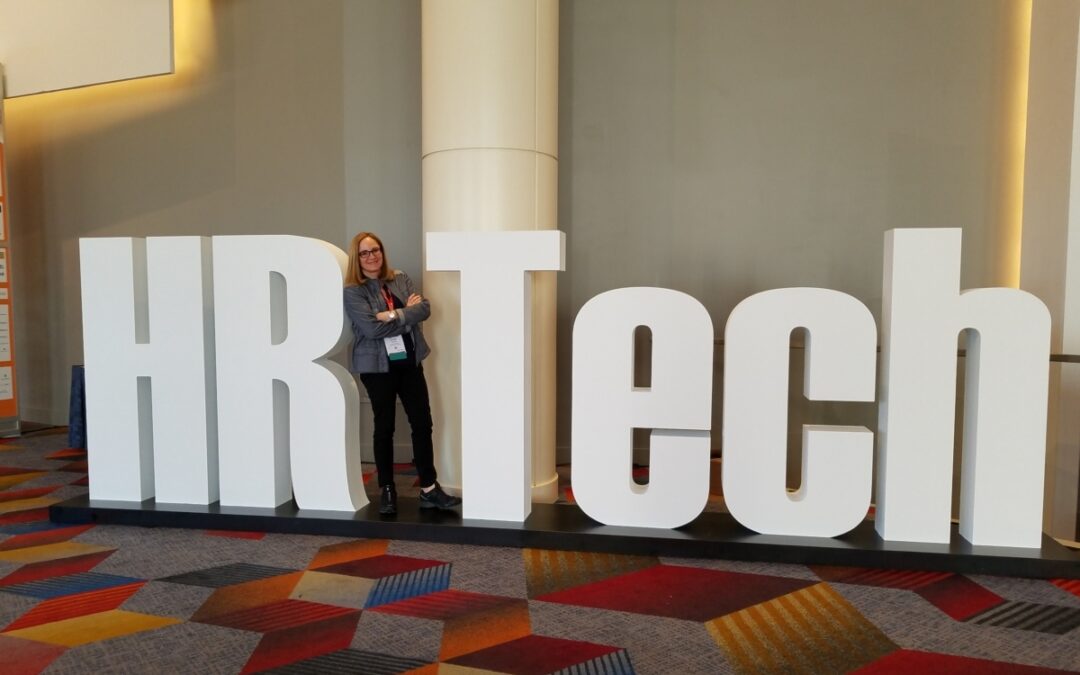
CEO Ilyce Glink to Speak at the 2018 HR Women in Tech Conference
Will we see you at September’s HR Technology Conference in Las Vegas?
It’s official: Best Money Moves’ CEO Ilyce Glink will speak on employee financial wellness at the 2018 Women in HR Technology Pre-Conference Event. This annual event attracts industry experts, thought leaders, software vendors, senior HR Executives, and IT innovators.
“The HR Technology Conference is the world’s leading event on HR technology covering all the latest trends – Talent Acquisition, Employee Engagement, Diversity & Inclusion, Big Data and more.”
At the 2017 HR Tech Conference, Best Money Moves placed third out of more than 150 entries in the Next Great HR Tech Company competition. This is the second year the company will exhibit at HR Tech.
Get the inside scoop on the upcoming event and learn more about why you should be at the HR Tech Conference – we hope to see you there!
Does Financial Wellness drive employee engagement? It can – if the program is designed correctly. Research shows that offering employee financial wellness benefits not only contributes to your employees’ overall health – which has innumerable positive effects – it lures top talent and improves employee satisfaction. Here’s more:
Are you evaluating candidates’ credit scores as well as their accomplishments? You may want to reconsider. More than one in 5 consumers have an error in their credit report, lowering (or sometimes raising) their credit scores. Here’s what you need to know:
Credit Reports and Their Errors
Companies are taking Parental Leave Benefits into their own hands – how does yours measure up? Maternal leave is important – but fathers need paternity leave rights as well. Companies offering parental leave are seeing a change in office culture – for the better.
Parental Leave Benefits for All Parents
Do your employees know how much they need to live on post-retirement? Many don’t. Financial experts claim that $1 million is an “ideal” retirement savings goal, but that’s just not realistic. Workers that are 55-64 years old have saved about 12 percent of that: an average of $120,000. The average retiree needs around $46,000 per year. Can you help your employees fill that financial gap?
Your Older Employees Need Financial Education, Too
Can government-sponsored retirement programs save your small business money? Legislation is in the works for small businesses to create government-sponsored payroll-deduction retirement programs. Fifty-two percent of American households aged 55 and up have no retirement savings, with just a few working years left to save. Could this work for your employees?
Govt. Sponsored Retirement Plan?
Do your employees understand how to prepare for retirement? Companies offering a 401(k) are beginning to offer Roth 401(k) contributions as well. The different tax status of the Roth 401(k) (funds are added post-tax) can give your employees more flexibility as they prepare for retirement.
Roth 401k(s) and Your Employees
HR representatives have heard it all before. Employee complaints require more than just listening. You have to handle each employee issue with kindness, understanding and required legaleze. Forbes columnist Liz Ryan compiled the top ten issues most HR representatives will handle on a regular basis.
Top Ten Issues That Every HR Rep Will Deal With
Have something to add? Email info@bestmoneymoves.com.




